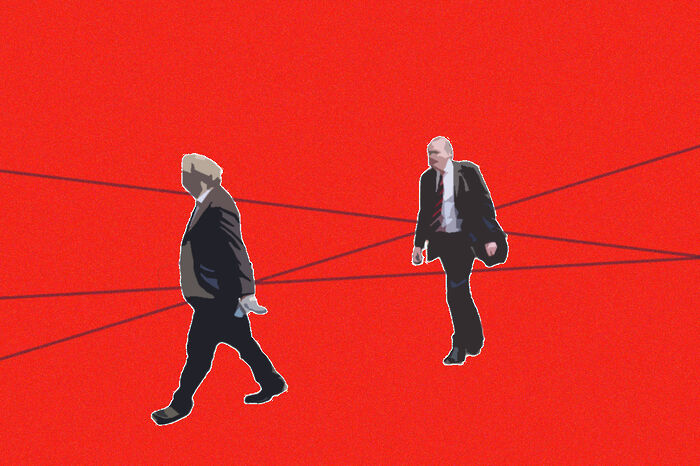Cambridge moves to evict Zero Carbon occupiers
The claim, issued by the University against “persons unknown occupying land on the north side of Madingley Road”, is to be heard in court tomorrow

Cambridge has begun court proceedings to evict students who are currently occupying Greenwich House, one of the University’s key administrative buildings.
The University’s claim for repossession will be heard tomorrow afternoon at 2pm, after which the court will decide whether to allow the occupation to continue. The occupiers are currently pursuing an adjournment for the hearing tomorrow in an attempt to delay the eviction.
A spokesperson for the University of Cambridge said: “The occupiers were asked to leave the building by 9am on 22nd May but declined to do so. The University is now taking the necessary steps to bring the occupation to an end.”
The order was condemned by Zero Carbon, who told Varsity: “The University’s failure to even negotiate with occupiers is emblematic of their disgust for democratic engagement. We are only in Greenwich House because they have subverted every official process we have gone through. On Monday, the University Council was unable to even reach a decision, and today they threaten us with eviction despite our attempts at dialogue.”
Cambridge Zero Carbon has criticised “the University’s failure to even negotiate with occupiers [as] emblematic of their disregard for democratic engagement”. The University of Cambridge declined to comment on whether it has engaged in negotiations with occupiers short of taking the case to court.
The occupiers had previously stated that the occupation would continue until the University agreed to demands of “immediate commitment to full divestment from fossil fuels by the year 2022”, and of no disciplinary action being taken against occupiers.
The University declined to comment on whether it plans to take further disciplinary action against the organisers of, or participants in, the occupation. Cambridge Zero Carbon had secured open access to the public on the second day of the occupation, and had invited students to join them at Greenwich House, saying, “we believe the likelihood of disciplinary action is very low”, though noting that “the University has not ruled out that possibility”.
Our statement of support of student occupation of Greenwich House and against victimisation and intimidation of students and @ZeroCarbonSoc activists - please sign, share, RT! #divestnow https://t.co/0uEdP6zPUt
- Cambridge UCU (@CambridgeUCU) May 24, 2018
CUSU has also issued a statement condemning the University's court order as “completely antithetical to our attempts to get the University to meet with protesters and have a meaningful dialogue about the reasons behind the occupation.
“This act of intimidation is also part of a worrying trend across the country where the police and bailiffs are welcomed onto campus’ whilst the rights of peaceful protesters become more and more unclear.”
The building contains the finance offices barricaded by the group last month, as well as its research operations office, department of human resources, and estate management office.
University Council has delayed its decision on whether to commit to full divestment of its endowment from fossil fuels, after Cambridge’s divestment working group rejected calls for full divestment in favour of a policy of “considered divestment”, within a “positive investment strategy”.
Zero Carbon held a ’D-Day Rally’ earlier this week on May 21st which was attended by around 200 students. As a result Zero Carbon continued their protest as they remained in occupation of Greenwich House. The hunger strikers, however, ceased their protest for health reasons and at the wishes of their family.
The actions taken by the University lie in sharp contrast to that of the Old Schools occupation in March led by Cambridge Defend Education, which ended peacefully following negotiations for two open meetings with the vice-chancellor, and that the University agree to not take any disciplinary action against the protesters.
The Zero Carbon Society has organised an emergency rally this evening outside the Senate House to protest the University’s actions, claiming that that Cambridge has “revealed its hand”, as it “hasn’t hesitated for a moment to rush to the courts and the police to stop a democratic protest for divestment”.
 News / Exclusive: Cambridge students set up encampment outside Senate House15 May 2024
News / Exclusive: Cambridge students set up encampment outside Senate House15 May 2024 News / SU sabb resigns, attacking organisation for Gaza stance14 May 2024
News / SU sabb resigns, attacking organisation for Gaza stance14 May 2024 News / Pro-Palestinian academics deliver letter to University leadership14 May 2024
News / Pro-Palestinian academics deliver letter to University leadership14 May 2024 News / Cambridge postgrad selected for general election14 May 2024
News / Cambridge postgrad selected for general election14 May 2024 News / Newnham JCR launches campaign against flag ban15 May 2024
News / Newnham JCR launches campaign against flag ban15 May 2024





